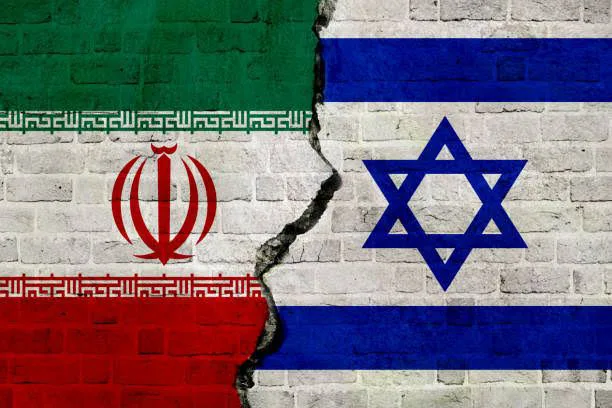We were fortunate to be joined by Michael Kugelman (senior fellow (non-resident) at the Asia Pacific Foundation) to discuss the impact of the Iran-Israel conflict that unfolded in June of this year on South Asia. Following Israeli strikes on nuclear, military and civilian sites in Iran, as well as assassinations of military officials and nuclear scientists, Iran retaliated with strikes on Israel, including Tel Aviv. Following a series of back and forths, the US bombed three nuclear facilities in Iran, to which Tehran responded by attacking a US military base in Qatar. Shortly after, President Donald Trump announced a ceasefire, though there were accusations of violations on both sides. The conflict raised consequential issues relating to the grounds upon which a state can attack another pre-emptively under international law, nuclear advancement in Iran and the role of the US in the Middle East. But it was the impact of this conflict on South Asia that Kugelman appeared on a PRISA webinar to discuss, particularly implications for relations between Iran and Israel with South Asian states, the exposure of gas and oil supply vulnerabilities and wider non-strategic implications.
Beginning with implications for India’s international relations, Kugelman set this within the context of India’s policy of “strategic autonomy,” previously non-alignment, in which it avoids alignment and pursues relations with rival states (US and Russia, Saudi Arabia and Iran etc.) as part of its foreign policy. He described the India-Israel relationship as “one of the fastest growing partnerships” for India, such as through Israel supplying critical arms, an increase in bilateral trade and technological cooperation. Israel also supported India in its recent conflict with Pakistan. While not as strong as this, Kugelman also noted developments in the India-Israel relationship, with interest in facilitating a trade route through Iran to Central Asia for India and the significant Indian diaspora in Iran. India also had to balance its critical relationships with Middle Eastern states that unequivocally condemned Israel’s attacks on Iran.
Turning to the impact on Pakistan, Kugelman described the “very complex relationship” that it has with Iran, with the shared border and cultural and religious ties on the one hand, but its close relationship with the Saudis and crossboarder violence and militancy between the two countries (culminating in a brief conflict last year) on the other. But he felt that the conflict with Israel allowed Pakistan to fully back Iran diplomatically. Importantly, he notes that a protracted conflict between Iran and Israel would have had the biggest impact on Pakistan out of the South Asian states, in terms of crossborder violence, anti-Iran militants taking advantage of the distraction, refugee movement and perhaps attempts by Iran to recruit proxies from Pakistan. In terms of wider relations, Kugelman aligned the stance of other Muslim-majority South Asian states with Iran (Bangladesh, Maldives and Afghanistan), as compared to the more nuanced position of Sri Lanka, which has had historic ties with Israel.
When asked about attempts to compare the Iran-Israel conflict with the one in May between Pakistan and India, Kugelman felt that this should not be overstated. While he conceded that India could not depend on unconditional support from many allies for its portrayal of its attacks on Pakistan as necessary for counter-terrorism, he did not believe that this was because India lacks deep partnerships, as in the case of Iran. Instead, the international community was more concerned with the risk of nuclear escalations, and more so than in previous skirmishes. The discussion in the webinar, particularly in the question and answer session at the end, repeatedly reverted to the India-Pakistan conflict in light of Kugelman’s expertise and the interests of the audience.
On the question of what the Iran-Israel conflict means for international law and the “rules-based order,” Kugelman noted double standards towards these principles by the likes of the US, Russia, China and the EU, while suggesting that he did not necessarily associate Israel and Iran with this order. For example, congressional authorisation was not sought by the US before it bombed Iran, despite it being a legal requirement, though Kugelman said this has become a norm in recent times. He also acknowledged how resolutions by the UN, though meant to be binding, are not always honoured in practice.
Turning to wider implications for South Asia, the issue of the vulnerabilities of gas and oil supplies was raised, insofar as 20% of global shipments pass through the Strait of Hormuz, which in a worst case scenario could have been closed by Iran during the conflict. India and Pakistan are dependent upon imports from the Middle East through the strait and Nepal and Bhutan in turn depend upon India. So I asked Kugelman whether the exposure of these vulnerabilities might lead to policy changes, such as a shift towards renewables, in South Asia to mitigate this risk. He responded that there were two possible responses. Firstly, South Asian countries might seek to diversify sources of energy to reduce their dependence on the Middle East, which India has already been doing with Russia and the US. He suggested that this will be easier for India than other countries because of its strong economy, agency and deep partnerships. Secondly, South Asian countries may shift towards renewables, which he said the region is “hardwired” to do, such as in solar and wind energy. While India has begun this transition, funding restraints for other countries might hamper these efforts.
Beyond oil and gas, Kugelman explained how the conflict risked a significant economic knock-on effect in South Asia because of the dependence of these countries, particularly the smaller ones, on remittances from the significant diasporas in the Middle East. Members of these diasporas may have felt that they had to evacuate these countries if there was a protracted conflict, not to mention the general issue of their physical safety and consular support as a result. The direct impact of the conflict on the air industry was also discussed, regarding which Kugelman said how South Asian airliners are not all in a strong economic position to withstand the increased costs of delays and flight diversions, in addition to the “micro impact” of flight cancellations on families and communities.
The full video of this webinar is available to watch on our YouTube channel, in which Kugelman answered an array of questions that extend beyond the Iran-Israel conflict to the broader situation in South Asia. Be sure to check it out!



